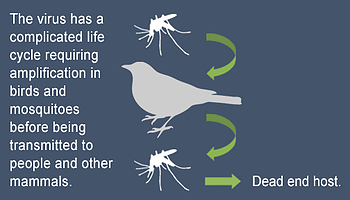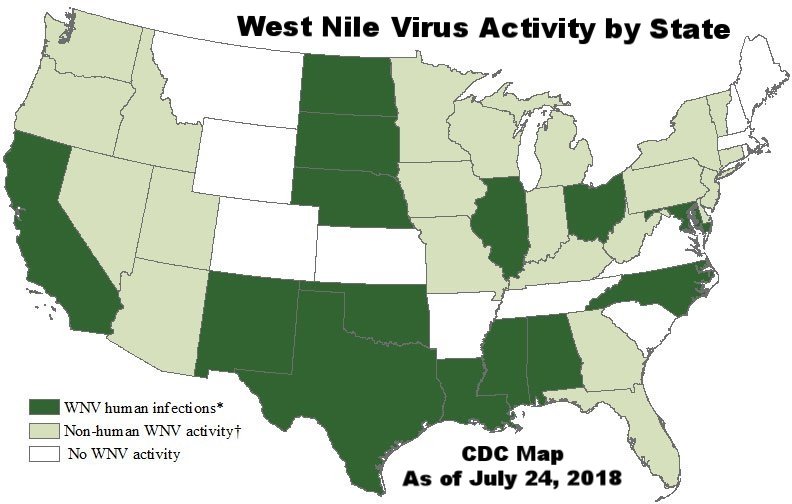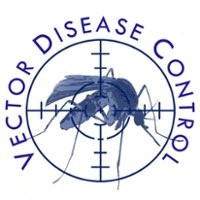West Nile Virus
What is West Nile Virus?
West Nile virus (WNV) is a mosquito-borne arbovirus that was discovered in 1927 in the West Nile sub-region of Uganda. The first serious outbreaks of WNV occurred in the mid-1990s in Algeria and Romania. The virus was introduced in the United States in 1999, with the first case being identified in New York City. That year, 62 human cases, 25 horse cases, and countless bird diagnoses were reported in New York State.
The CDC has since received more than 40,000 reports of people affected with WNV in the lower 48 states, making it the most common virus transmitted by mosquitoes to humans in the U.S. Because only a portion of all cases are reported, the CDC believes the actual number of illnesses may be as high as 700,000.

How Does it Spread?
WNV is typically transmitted to humans by mosquitoes that have previously fed upon an infected bird. While over 150 species of mosquitoes have been known to carry the virus, the main vector species in the U.S. are Culex pipiens, Culex tarsalis, and Culex quinquefasciatus. These mosquitoes are all active at night, and most cases of infection occur during the summer months. Transmission of the virus has occurred in a very small number of cases through blood transfusion, organ transplant, and breastfeeding; however, WNV is not transmitted from person-to-person or from animal-to-person through casual contact.
Symptoms of West Nile Virus Infection
- The majority (4 out of 5) of people infected with West Nile virus will experience no symptoms.
- Approximately 20% of people affected by the virus will experience flu-like symptoms including fever, headache, nausea, muscle pain, and swollen lymph glands.
- Other symptoms may include a stiff neck, rash, sleepiness or disorientation.
- Less than 1% of those infected will develop West Nile Encephalitis or Meningitis, which can lead to coma, tremors, convulsions, paralysis, and even death.
Treatment of West Nile Virus Infection
- Rest and acetaminophen can be used to treat the symptoms associated with West Nile virus infection.
- There is currently no WNV vaccine available.
- People with mild symptoms typically recover completely within several weeks.
- Those with severe symptoms are often hospitalized to receive supportive treatment and close care.
- If you believe that you or a family member might have a West Nile virus infection, consult a physician immediately.
Severe Neurological Diseases Caused by West Nile Virus
Severe cases of WNV infection can affect the central nervous system and result in a number of serious neurological diseases.
West Nile encephalitis, West Nile meningitis, and West Nile poliomyelitis are all diseases that cause inflammation of the brain and/or spinal cord and the surrounding tissues. These diseases can be debilitating or, in some cases, even deadly.




